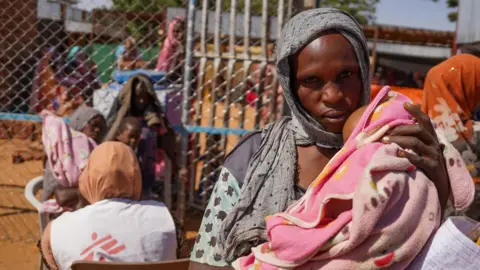The Sudanese region of Darfur, long plagued by conflict and humanitarian crises, has witnessed a dramatic escalation in violence in recent weeks, prompting international alarm. The United Nations has reported that as many as several hundred people may have been killed in a series of brutal attacks, raising urgent concerns about the stability of the region and the safety of its residents.
The latest wave of violence is primarily attributed to ongoing clashes between various armed groups, including government forces, militia factions, and local communities. The UN’s assessment indicates that these skirmishes have intensified in the context of escalating militarization and competition over resources, such as land and water, exacerbated by the effects of climate change and economic instability.
Witness accounts and reports from humanitarian organizations detail horrifying incidents where entire villages have been attacked, people have been displaced, and countless individuals have gone missing. Reports describe armed groups systematically targeting civilians, with evidence suggesting a deliberate strategy to instill fear and exert control over the local population. According to UN statements, mass graves have been discovered, further highlighting the tragic human cost of these attacks.
The violence in Darfur is not new; the region has been marked by conflict since the early 2000s when a rebellion against the Sudanese government ignited widespread violence. This has led to a humanitarian crisis that has seen millions of people displaced, with many reliant on international aid for survival. However, the recent surge in violence signals a worrying trend that could destabilize not only Darfur but the broader region of Sudan.
UN officials have called for an immediate cessation of hostilities and urged both the Sudanese government and rebel groups to engage in dialogue. They have emphasized the need for accountability and accountability for the perpetrators of these heinous acts. The organization has also highlighted the importance of international support to address the root causes of the conflict, including the need for political solutions and socio-economic development.
The international community’s response has been varied, with some countries calling for sanctions against those responsible for the violence. However, critics have pointed out that without a coordinated approach that includes broader measures for reconciliation and rehabilitation, it will be challenging to achieve lasting peace.
The humanitarian situation in Darfur continues to deteriorate. Over 2.5 million people remain internally displaced due to the ongoing conflict, and access to food, healthcare, and other basic services has become critically limited. The UN has warned that without immediate intervention, the consequences could be catastrophic.
As the world watches and waits for a resolution to this crisis, the people of Darfur face an uncertain future marked by fear and violence. The calls for peace and stability in the region must be heeded, not just by the warring factions within Sudan but by the global community. In these dark times, the voices of the victims must not be silenced. The need for international solidarity and urgent action has never been more crucial.
In conclusion, the recent attacks in Darfur, with hundreds potentially killed, highlight the urgent need for renewed international focus on Sudan’s crisis. The road to peace will require a multifaceted approach that addresses both immediate security concerns and the societal issues driving conflict in the region. Only through concerted efforts can the specter of violence in Darfur be lifted, allowing the region to progress toward a more peaceful and secure future for all its inhabitants.
Email Us on editorial@nnafrica.com













